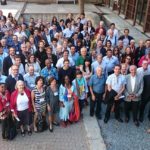
Professor Michele Schweisfurth: Director of the Robert Owen Centre for Educational Change reflects on ‘How can education create social progress?’
This is the question posed in the Education Chapter of the report of the International Panel on Social Progress (IPSP). When you bring together a dozen educationists from universities around the world to attempt to answer it, the complexities of this question soon emerge. What do we mean by education, and what’s it for? What do we mean by social progress? Which comes first? Do all countries share the same goals for social progress and the same understandings of education’s role in it? What are the conditions under which education’s potential for contributing to social progress can be maximised? Are the solutions to be found in policies, in governance structures, in the agency of education personnel, or in the daily life of classrooms?
As one of the lead authors of the education chapter, I was privileged to experience first-hand the debates that these questions raised and to be part of the fascinating but daunting task of collating, interpreting and presenting the evidence on these questions.
The IPSP is modelled on the International Panel on Climate Change. IPSP brought together over 300 social scientists to synthesise available knowledge on how societies work and evolve, and how people can flourish. It has aimed to create a blueprint – or at very least, to start a debate – on how to construct societies that are more inclusive and just. In the context of current challenges including uneven development, conflict, displacement, and rapid social change, the report is timely. The chapter on education is one of 22 in the report.
As well as the Robert Owen Centre contingent of one, the education team included academics from Austria, Brazil, Germany, India, Israel, South Africa and the United States. To add to the diversity of perspectives, this group of educationists included psychologists, sociologists, economists, higher education specialists, a political scientist, a philosopher, and a comparativist (me). Needless to say, we did not agree on everything. However, we did share the conviction that education COULD lead to social progress (although it doesn’t necessarily and can be part of the problem as well as part of the solution). We also agreed that solutions lay not in single silver bullets but in multi-faceted approaches, including the macro-levels of policy and governance through to the micro-levels of classroom processes and individual engagement.
We met each other for the first time in Istanbul in August 2015, and then again in Vienna in February 2016 and January 2017 in Lisbon. We have had lengthy email exchanges in between as we worked on our assigned sections and reviewed and debated each other’s drafts. The draft chapter was on-line for public comment for several months (https://comment.ipsp.org/chapter/chapter-19-how-can-education-promote-social-progress) and we are now finalising it for publication as part of a Cambridge Press volume and on-line resource.
Some of the chapter’s contents will be contentious, and what is likely to be especially controversial is what is NOT in the chapter. We had about 20,000 words to ‘solve’ the relationship between education and social progress. In doing this, we tried to cover most of the range of formal education, from early childhood through university, but omissions were inevitable. Wherever we drew the lines – in leaving out non-formal or adult education, the needs of particular groups of learners, or examples from every part of the world – I am sure that there will be dissenting views on where those lines were drawn. Education is a highly-contested space. The risk in consulting widely and trying to include every perspective is that only the blandest and safest statements will survive (‘education is good’, ‘social justice is good’, ‘we need both but they are not easy’). We have tried to be innovative while respecting evidence and diversity and will have to respond to the consultation feedback with those imperatives in mind.
We started Chapter 19 by asking what the actual purposes of education are, and we argue that its economic purpose is given disproportionate emphasis in policy attention, compared to its civic, humanistic and equity-promoting functions. The chapter then presents a broad view of education in the world today, showing how formal education has expanded in the last few decades, and emphasizing how it relates to citizenship, growing opportunities for social mobility, economic development and equity. We then consider what needs to happen to strengthen the relationship between education and social progress. We discuss a range of facilitators and barriers to education as a means for social progress, including the role of education governance and actors at all levels of the system, curricular content, and pedagogical processes.
The full first draft report of 22 chapters – including the chapter on education – is available for reading at https://comment.ipsp.org/.
This item first appeared in the 25th November 2016 issue of Scottish Times Educational Supplement.

